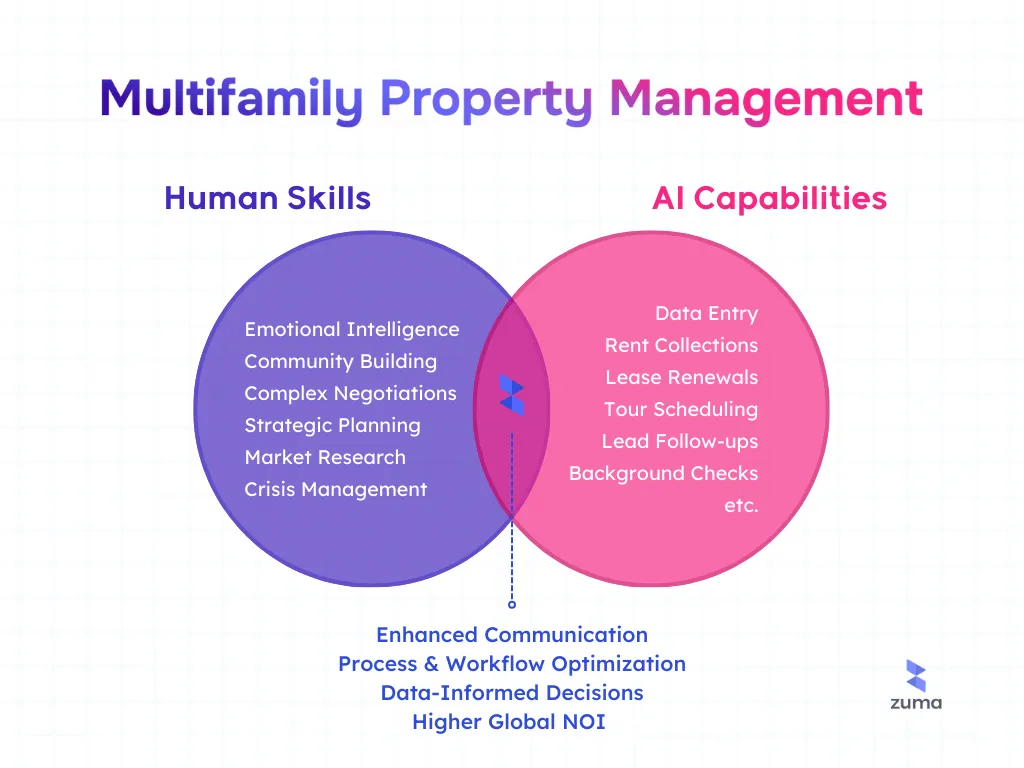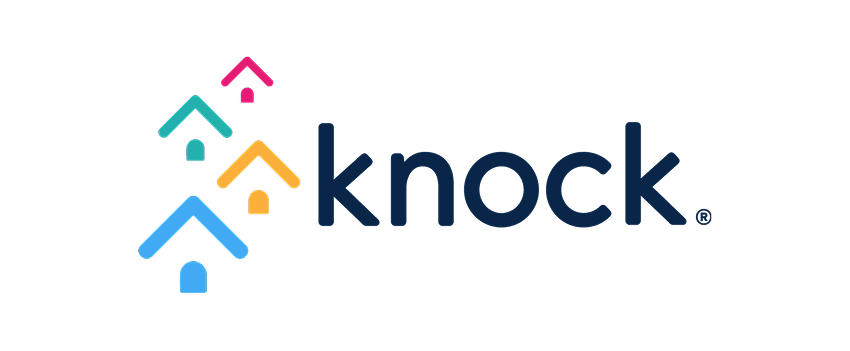Seamlessly
integrate
with your current PMS and CRM
4 hours.
That's how much time the average leasing agent spends on rent and move-out collections each day.
Chasing rent payments, manually entering data into multiple systems, scanning stacks of lease documents, and responding to the same maintenance questions over and over - that’s the rest of their day.
Meanwhile, valuable time for building relationships with new and existing residents slips away.
As the property management industry evolves, innovative AI solutions promise to eliminate these administrative burdens, but here’s a surprising stat: 54% of property management professionals have no immediate plans for full AI adoption.
→ Successful multifamily property management companies are implementing AI solutions selectively, focusing on areas where they can achieve the most immediate impact while minimizing disruption to existing operations.
Why? Because they've recognized something crucial: in this deeply personal business, technology must enhance rather than replace the human element.
Today we’ll explore:
Let’s dive in!
AI brings remarkable capabilities to property management - from instant responses and data analysis to intelligent automation and predictive insights.
When combined with the inherently people-focused nature of property management, the results are transformative. ✨
One property manager recently shared with us: "Now that we're not running rent collections, I finally have time to train my team on the manager reports and strategic planning that will help them advance their careers."
This insight cuts to the heart of AI's true potential: it's not about replacement, it's about elevation.
The true cost isn't just in the hours lost—it's in the untapped potential of your team.
When property professionals spend their days buried in administrative work, their ability to drive property value through relationship building, strategic thinking, and community development remains largely unexplored.
When AI handles routine tasks, something remarkable happens.
While AI can handle routine communications and data processing, certain skills remain uniquely human, such as:
As one property manager told us: "The girls are asking me 'What can I do to help?' because they finally have time. Now I can train them on things they wouldn't have had time to learn before."

By elevating teams from day-to-day task management to strategic thinking, we're not just changing job descriptions—we're transforming the entire property management experience.
Teams are becoming more engaged, residents are receiving better service, and properties are seeing improved results. This is what happens when we let humans focus on being human.
The most successful properties in 2025 won't be those that replaced humans with AI – they'll be the ones that used AI to unleash their team's full potential. This means:
Experience has shown that purely automated solutions often fall short in crucial moments.
Whether it's handling sensitive resident situations, navigating complex lease negotiations, or ensuring legal compliance, having human expertise readily available is essential.
The most effective approach (ehem, Zuma’s approach) combines AI efficiency with human judgment – letting technology handle the routine while keeping experienced team members available for complex issues that require a nuanced, personal touch.
This hybrid approach isn't just about having a backup plan – it's about creating a more robust, reliable system that can handle both everyday tasks and unexpected challenges.
When AI and human expertise work in tandem, properties can deliver the speed and efficiency of automation while maintaining the high-touch, personalized service that residents expect.
The future of property management isn't about AI replacing humans – it's about AI elevating humans to do what they do best. When routine tasks are automated, teams can focus on the complex, nuanced, relationship-driven work that truly drives property success.
As one property manager put it: "We're not doing less work – we're doing better work." And that's exactly what AI should enable: not the replacement of human potential but its elevation to new heights.
Ready to learn more about balancing AI and human touch in property management? Check out our guide on property management metrics and picking AI Leasing tools!
with your current PMS and CRM







